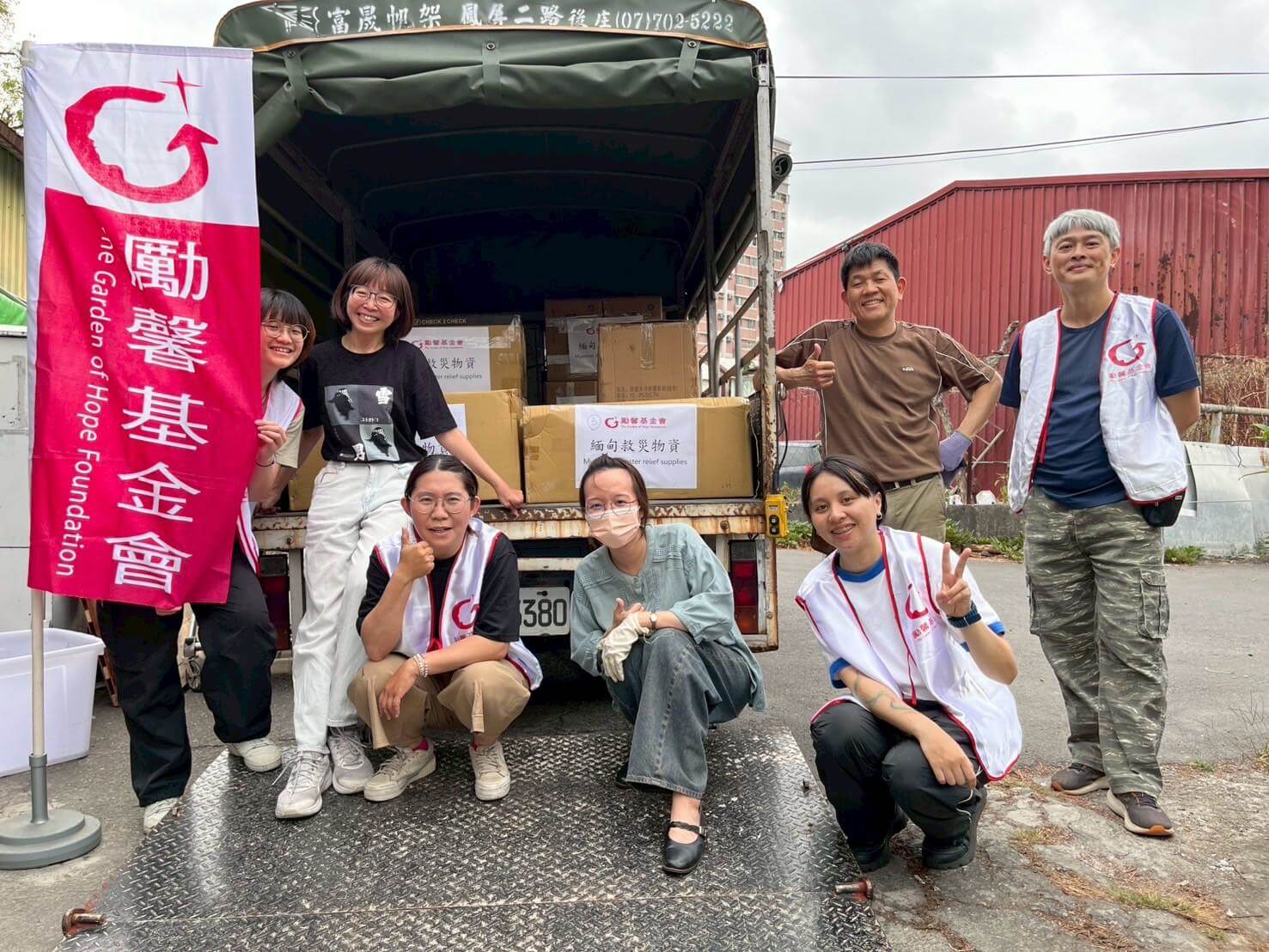“Dear Garden of Hope Foundation Team,
I truly don’t know how to thank you enough for your care and concern. My family and I are safe for now, but our home remains dangerously damaged, and many people around us are suffering deeply from a severe lack of basic supplies.
The situation in Sagaing, Mandalay, and other affected regions is dire. Thousands of people have lost everything — there is no clean water, no food, and no safe shelter. We’re being forced to live in extremely unsanitary conditions, without access to basic necessities, while the prices of essential goods have soared.
What’s even more heartbreaking is that many women no longer have access to menstrual products — some can’t even get a single sanitary pad…”
This letter comes from a young girl in Myanmar who is part of the Asian Girlsin Action Project, supported by the Garden of Hope Foundation. Her words reflect a painful yet powerful resilience — a voice that stays with you long after reading.
When natural disasters strike alongside political unrest, community care networks collapse, basic living conditions deteriorate rapidly, and the harsh reality of gender inequality becomes even more exposed.
In response, the Garden of Hope Foundation quickly mobilized its resources centers to gather essential items — including sanitary pads, tents, and mosquito nets. These supplies will be delivered to Myanmar through 台灣海外援助發展聯盟 Taiwan AID and distributed by the Myanmar Taiwanese Chamber of Commerce.
The Overlooked Reality: Women in Crisis
During the 2004 Indian Ocean tsunami, four times more women than men lost their lives. In the 2015 Nepal earthquake, 55% of victims were women and girls. These numbers remind us that when disaster strikes, women are often at greater risk.
In many disaster zones, women bear the responsibility of caring for their families, yet they face the most dangerous environments with the fewest resources.
When shelters lack privacy, when toilets are not designed with gender safety in mind, and when sanitary products become a luxury, women’s safety, bodily autonomy, and dignity are put at even greater risk.
In the updates we’ve received, many women have been forced to use unclean cloth, paper, or even sand in place of sanitary pads. Their freedom of movement is restricted, and they face repeated infections. This is not an isolated incident — it’s a reflection of a systemic gap in disaster response.
Asian Girls in Action: Change from the Margins
Since 2021, the Garden of Hope Foundation has invited young women from across Asia to Taiwan for short-term training. These girls bring with them local gender issues and use a gender lens to create solutions aligned with the United Nations’ Sustainable Development Goals (SDGs).
With the foundation’s support, these young women have launched local initiatives and advocacy campaigns to drive change and raise awareness of gender issues within their communities.
Their projects have not only enhanced gender understanding locally, but have also improved the lives of women around them. Some have created gender support groups in disaster zones; others have designed culturally sensitive menstrual education workshops — all striving to create change, even in the face of hardship.
Finding Order Amid Chaos: Local Networks and Resource Mobilization
In times of crisis, we understand that both immediate action and long-term commitment are essential. The Garden of Hope Foundation continues to work with local and international networks to support frontline partners in addressing women’s urgent needs, reducing health risks, and easing physical and emotional burdens.
We see the struggles of women in disaster zones around the world. That’s why we remain committed to connection, advocacy, and support — so that no woman is left unseen or unheard, and so that gender is no longer an afterthought in emergency response.
Disasters Don’t Discriminate by Gender — But Our Response Can
We believe gender equality is not a topic reserved for peaceful times. In every disaster, we choose to stand with those whose voices are the most vulnerable — to ensure they are seen, heard, and believed.
From Myanmar to Taiwan, and in every corner of Asia, the Garden of Hope Foundation will continue walking alongside girls and women — planting hope through action, and driving change through connection.

